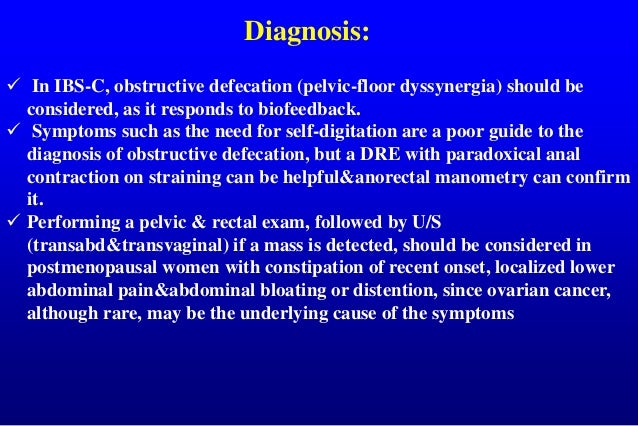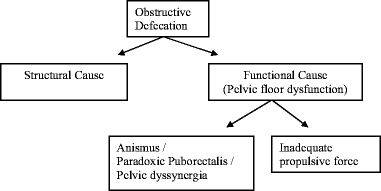Pelvic Floor Dyssynergia Causes

We are working closely with our technical teams to resolve the issue as quickly as possible.
Pelvic floor dyssynergia causes. Offering a wide range of treatments including biofeedback and specialized gastrointestinal pain management techniques you can take comfort knowing that experts at stanford health care can help you feel better. Pelvic floor dyssynergia is a behavioural disorder that is the result of an unintentional habit. To put it simply the pelvic floor muscles are overactive tight or non relaxing. It is often a habit of an ineffective posture and behaviour you have when you try and have a bowel movement.
Dyssynergic defecation is a health condition with difficulty passing stool due to problems with the muscles and nerves of the pelvic floor. An example of anorectal dysfunction that can contribute to constipation is a condition called pelvic floor dyssynergia also referred to as anismus. It can result in chronic constipation dyssynergic defecation is considered to be the result of pelvic floor dysfunction in that the muscles and nerves within the pelvic floor are not functioning as they should. A licensed pelvic floor therapist can conduct a thorough evaluation of the pelvic floor and help you come up with strategies to have a bowel movement without straining.
Anismus puborectalis dyssynergia paradoxical puborectalis obstructive defecation dyssynergic defecation pelvic outlet obstruction and pelvic floor dysfunction. To determine if there was a singular cause that led to your pelvic floor dyssynergia or if multiple events played a part your gp will. Examination may include an internal exam via the vagina or rectum observing the movement of the pelvic floor muscles as well as palpation of the structures of the belly and. The pelvic floor are the muscles that attach to the pelvis in the abdomen.
Anal sphincter dyssynergia can be caused by obstructions but mostly improper relaxing of the anal sphincters or pelvic floor muscle during. Pelvic floor dyssynergia is a painful condition that can affect your quality of life. It is marked by the failure of pelvic floor muscles to relax or a paradoxical contraction of the pelvic floor muscles with defecation. Pelvic floor dyssynergia is known by many different names including.
Anal sphincter dyssynergia also known as pelvic floor dyssynergia is the weakening of the pelvic floor or sphincters in the anus. If you re a woman you may also feel pain during sex and if you re a man you may have problems having or keeping an erection erectile dysfunction or ed.

















